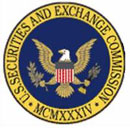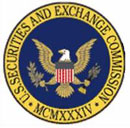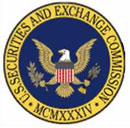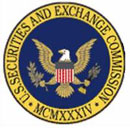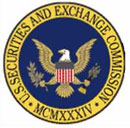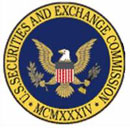|
|
|
Silicon Valley Entrepreneur Settles SEC Charges
Securities |
2008/01/23 08:56
|
| The founder of Silicon Valley communications chip maker Raza Microelectronics Inc. on Tuesday agreed to pay nearly $3 million as a part of a settlement on insider-trading charges, the Securities and Exchange Commission said. The charges against Saiyed Atiq Raza, 58 years old, a former president and chief operating officer of chip maker Advanced Micro Devices Inc. (AMD), stemmed from trades he made in 2006 while serving as a director of San Francisco orthodontic device maker OrthoClear Holdings Inc. Under terms of the settlement, Raza did not admit nor deny allegations that he unlawfully netted nearly $1.5 million by trading on confidential company information. Raza was also barred from serving as an officer or director of a public company for five years, and he was permanently enjoined from future violations of the federal securities laws. Raza Microelectronics said late Tuesday that Raza resigned as company chairman effective Jan. 17, two months after he stepped down as CEO. A spokesman said Raza's settlement would not have "any impact as the company moves forward." Raza Microelectronics' Web site stated Tuesday that Raza was also serving as a director at AMI Semiconductor, Mellanox Technologies (MLNX), eASIC and MetaRAM. Officials at Raza Microelectronics, which makes chips for telecommunications switches and network routers, were not immediately available to comment on the settlement. The SEC alleged that Raza in September 2006 was informed by OrthoClear's CEO that the company had agreed to cease competing with rival Align Technology Inc. (ALGN), of Santa Clara, Calif. The agreement, which effectively put OrthoClear out of business, followed a long-running intellectual property rights dispute between the transparent teeth-aligner market competitors. Raza within two days of learning about the settlement began making large purchases of Align call options - which would increase in value if the company's share price rose - before the litigation settlement agreement became public, the commission said. When the OrthoClear settlement was publicly announced several days later, the price of Align stock shot up 48% and Raza netted a profit of $1,450,900. Raza agreed to pay a total of $2,977,842, including repaying his $1,450,900 in trading profits, $76,042 in prejudgment interest and a civil penalty of $1,450, 900, the SEC said. Raza was at one point expected to become chief executive at AMD. He resigned from the No. 2 spot in 1999, citing personal reasons, but his departure followed big losses suffered during a price war with rival Intel Corp. (INTC). |
|
|
|
|
|
|
SEC chief puts mutual fund changes on his to-do list
Securities |
2007/12/29 10:08
|
In what will almost certainly be his final year as chairman of the Securities and Exchange Commission, Christopher Cox is preparing to tackle a number of issues — some controversial and some fairly straightforward — in 2008. Cox described an agenda he plans to discuss with senior SEC staffers after the new year. Though he has not announced that 2008 will be his final year at the SEC, it is almost certain that by the time President Bush leaves office in January 2009, Cox will also be gone, if only to allow the next president to appoint his or her own candidate to the position. Among the goals Cox hopes to achieve in 2008: •Mutual fund prospectus reform. Noting that U.S. investors have invested about $3 trillion of their retirement funds in the stock market, and that half of that sum is invested via mutual funds, Cox says he wants the mutual industry to do a better job communicating basic information to investors about their offerings. Currently, an employee trying to decide where to invest 401(k) contributions either has to wade through a mutual fund's prospectus, or look at sales material for the fund, which doesn't provide an adequate description of what the fund is about. In November, the SEC put a proposal for mutual fund prospectus reform out for comment. In a few months, after reviewing the comments, the SEC will vote on the matter. "It's not that people need things dumbed down," Cox says. "But people are busy. There's a reason that CEOs insist on having executive summaries. It's important to put the vital information upfront." •New rules on 12b-1 mutual fund fees. These add-on fees were approved by the SEC in 1980 as a way for mutual funds to promote themselves, attract new investors and, theoretically, reduce the cost of operating a mutual fund. But with the explosive growth of mutual funds over the past 25 years, the fees have morphed into pools that fund managers can use to reward brokers they do business with. The SEC's department of investment management is considering a proposal that would clarify the role that independent directors should play in approving a fund's 12b-1 plan. "You can expect the SEC to engage in rulemaking on 12b-1," Cox says. "Independent directors have been urging us to make changes in this area, and I think we can bring a great deal of clarity that is currently lacking." •Proxy access. Cox promises to revisit a topic that has generated the most severe criticism he has endured since being sworn in as SEC chair more than two years ago: the ability of shareholders to have access to a public company's proxy materials. Last month, Cox voted in favor of a proposal that solidified the SEC's long-standing position that public firms can rebuff shareholders' attempts to get their own director candidates on proxy ballots. Citing ambiguity in the SEC's position, a federal appeals court ruled in 2006 that shareholder activists could force their candidates onto proxy slates through litigation. Cox's vote to close the "ambiguity" loophole drew outrage from investor-rights advocates. But Cox said at the time of the vote that he was not willing to proceed with a meaningful overhaul of the commission's proxy-access rules with a commission hobbled by the absence of one Democratic appointee. The August departure of Roel Campos, one of the Democratic appointees to the commission, changed the dynamics surrounding proxy access and scuttled any chance at meaningful reform for 2007. The other democratic commissioner, Annette Nazareth, also plans to step down. If and when the Senate votes to confirm their likely replacements — Democrats Luis Aguilar and Elise Walter — Cox vows to revisit the issue. •Protection of seniors. Cox has made protecting older investors a priority, cracking down on abusive "free lunch" promotions and the like. For 2008, he wants to reach out to investor advisers to find out answers to potentially tricky questions. If, for example, an investment broker has a longtime client who develops Alzheimer's, how should financial decisions be handled? Cox realizes that every situation will have a unique set of facts and circumstances, but with a boomer population rapidly moving toward retirement age, he says he wants to develop some "best practices" in the area. |
|
|
|
|
|
|
SEC investigating Merrill subprime portfolio
Securities |
2007/11/08 08:40
|
Embattled investment bank Merrill Lynch & Co. said Wednesday that federal regulators were investigating matters related to its holdings of high-risk mortgage debt. The Securities and Exchange Commission began the investigation Oct. 24, the world's largest brokerage firm said in a regulatory filing. It did not provide details but said it was cooperating with the inquiry.
Recent news reports have said the SEC inquiry included deals that Merrill struck with hedge funds to allegedly cloak its vulnerability to so-called sub-prime mortgage debt. The SEC has not publicly commented.
News late last month of a $2.24-billion third-quarter loss -- the biggest in Merrill's 93-year history -- tied to the summer's credit crisis shook the firm and swept out Chief Executive Stan O'Neal last week.
New York-based Merrill also said a class-action lawsuit by shareholders and a shareholder-derivative suit were filed recently against the company and several executives claiming they failed to disclose pertinent information about collateralized debt obligations, or CDOs, complex instruments that combine slices of different kinds of risk.
It was Merrill's bet on CDOs, and sub-prime mortgages underpinning many of them, that proved to be O'Neal's downfall. |
|
|
|
|
|
|
Ex-MetMortgage chief, SEC settle
Securities |
2007/10/31 03:52
|
| The Securities and Exchange Commission has reached a tentative settlement with the former chief executive of Metropolitan Mortgage & Securities and with a Bellingham-based developer over fraud allegations related to the Spokane investment company's collapse. The proposed settlement, filed Monday in federal court in Seattle, would require former Met CEO Paul Sandifur Jr. to pay more than $150,000 and barred from serving as an officer or director in any SEC-regulated company for five years. David Syre, owner of Bellingham-based Trillium, would pay $50,000 to the SEC; his company would pay an additional $75,000. The defendants would be permanently barred from violating securities laws, and the SEC would end its civil case against them. The deal must be approved by U.S. District Court Judge John Coughenour. The company, caught in a tangle of increasingly complex financial transactions designed to make it appear profitable, collapsed in 2004, leaving investors with more than $600 million in worthless securities. The SEC's complaint, originally filed in September 2005, detailed deals in which Met sold land to Trillium and other developers. The agency charged that Met, either directly or through its subsidiaries, disguised the fact it had financed all or most of the purchase price of the deals, so that it could improperly book the paper profits immediately. In 2002, shortly before the end of its fiscal year, Met sold two vacant parcels in Everett and Texas to a Trillium-controlled entity called Jeff Properties for nearly $24 million. Met also loaned the buyer most of the money needed for the purchase, replacing passive assets with supposedly profitable loans that would strengthen the company's numbers at a time it sought to raise money from investors. In separate cases, the SEC in March settled civil fraud charges against former Met executives Robert Ness and Thomas Masters, who agreed to pay fines. Dan Sandy, a business associate of Met and Trillum, also agreed to pay a $50,000 penalty. |
|
|
|
|
|
|
SEC Freezes Assets of Ex-Asset Manager
Securities |
2007/10/10 08:23
|
| The United States District Court for the Eastern District of New York entered a preliminary injunction in the SEC’s case against Peter J. Dawson, 49, and his companies BMG Advisory Services, and Ethan Thomas Co. The injunction freezes the Dawson and the firms’ assets as well as those of Dawson's wife, Lisa Dawson. It also orders them to cease violating federal securities laws. The injunctions are the latest step in the Commission’s case, which it initiated in November of last year. The SEC claims that Dawson took more than $2 million from at least seven investment advisory clients in his role as president and sole shareholder of BMG and Ethan Thomas. The Commission charges that Dawson primarily ripped off his elderly clients in Long Island, NY. As their financial advisor, he recommended that they surrender their variable annuity policies and mortgage their residences. Then he told them to transfer the proceeds to Ethan Thomas for Dawson to manage through BMG. To get them to agree, Dawson allegedly lied about his investments and how he planned to use their funds. He promised guaranteed returns of between 12% and 15%, and told clients that he would arrange to either pay their mortgages, or pay out monthly returns on the investments they made. In cases where the guaranteed return exceeded the client's mortgage payments, he claimed the excess return would accrue in the client's account. But instead of investing the money as promised, Dawson misappropriated his clients’ money for his own use. He directly withdrew at least $100,000 of client assets for his personal use. By March of 2006, he was pushing his clients for fresh infusions of cash just to keep making the mortgage payments he had promised to make. It appears that the scheme began collapsing in earnest in the summer of 2006. Between August 17 and 23, 2006, the bank servicing the account intended to make Dawson's mortgage payments returned twenty-one checks for insufficient funds, totaling approximately $172,176. By October of 2006, some investors began receiving notices that their mortgages were not being paid. But when they complained to Dawson, who refused to return their calls, and closed down BMG's office. Then, on November 7, 2006, Dawson attempted to commit suicide. After being briefly Hospitalized, he was released on November 17, 2006. One example of Dawson's fraud involved a 64-year old investor. In 2004, he recommended that the investor refinance his New York home. The investor then lived in Long Island and had been Dawson's client for approximately ten years. Dawson advised the investor to transfer the a large chunk of the proceeds from the refinancing to a "special account" at one of Dawson's firms. He guaranteed the investor a 15% return and promised to make the mortgage payments on the investor's Long Island residence from the investment returns of the "special account." By 2005, that investor had transferred approximately $700,000 to Dawson for his firms to manage. In October 2006, Dawson sent that investor a BMG fax claiming: "Your certified balance of funds as of March 24,2006 are $884,522.14. The funds are managed by BMG Advisory Services, Ltd." The letter was an utter lie, according to the Commission. The Commission is also seeking disgorgement of all ill-gotten gains and civil penalties, as well as additional relief, including orders permanently enjoining Dawson from committing future violations of the foregoing federal securities laws. |
|
|
|
|
|
|
SEC wants simpler executive pay reports
Securities |
2007/10/09 10:19
|
| Federal regulators are telling companies to provide clearer, more detailed analyses of their executive compensation decisions and avoid repeating unhelpful "boilerplate" in expanded disclosure statements. After reviewing 350 public companies' compliance with new disclosure rules, the Securities and Exchange Commission said Tuesday it asked "a significant number of companies to replace boilerplate discussions ... with more specific analysis" of how compensation committees determined executive pay and perks. While acknowledging that the new disclosure rules have provided investors with a substantial amount of information on executive pay, "far too often meaningful analysis is missing," John White, the director of the SEC's division of corporate finance, said during a speech Tuesday in San Francisco at the National Association of Stock Plan Professionals annual conference on executive compensation. The SEC had the most questions on "performance targets" for individuals that companies used to determine compensation and asked them to explain how the quality of an executive's performance translates into an objective pay decision. Corporate performance goals included in the proxies ranged from financial targets such as earnings and sales growth, to strategic goals including increases in market share, according to the review. The SEC earlier this year began faxing requests for more detailed information to hundreds of companies, including General Electric Co, Schering-Plough Corp. and Prudential Financial Inc. The government's initial review also found data presentation is important, including "using plain English." "Techniques such as providing an executive summary, or creating tables or charts tailored to a company's particular executive compensation program, can make the disclosure more useful and meaningful," according to the review. The reviews continue, and the specific correspondence with a company will not be released until 45 days after each review is completed, the SEC said. Since the new disclosure rules started, the Associated Press calculates total pay using the executives' salary, bonus, incentives, perks, above-market returns on deferred compensation and the estimated value of stock options and awards granted during the year. The AP figures may vary from the total compensation of company's report. |
|
|
|
|
|
|
SEC Concludes Linear Technology Inquiry
Securities |
2007/10/02 07:20
|
| Linear Technology Inc. said Tuesday that the Securities and Exchange Commission's investigation concerning the integrated circuit maker's historical stock option grant practices is completed and no enforcement action will be taken. Linear Technology previously disclosed that it had reviewed its historical option-granting practices for 1995 through 2006, with the assistance of outside counsel and an independent accounting firm. The company found no evidence of fraud or misconduct, and concluded that there was no need to restate any previously filed financial statements. None of the company's SEC filings were delayed due to the review, Linear said. |
|
|
|
|
|
|
Class action or a representative action is a form of lawsuit in which a large group of people collectively bring a claim to court and/or in which a class of defendants is being sued. This form of collective lawsuit originated in the United States and is still predominantly a U.S. phenomenon, at least the U.S. variant of it. In the United States federal courts, class actions are governed by Federal Rules of Civil Procedure Rule. Since 1938, many states have adopted rules similar to the FRCP. However, some states like California have civil procedure systems which deviate significantly from the federal rules; the California Codes provide for four separate types of class actions. As a result, there are two separate treatises devoted solely to the complex topic of California class actions. Some states, such as Virginia, do not provide for any class actions, while others, such as New York, limit the types of claims that may be brought as class actions. They can construct your law firm a brand new website and help you redesign your existing law firm site to secure your place in the internet. |
Law Firm Directory
|
|


